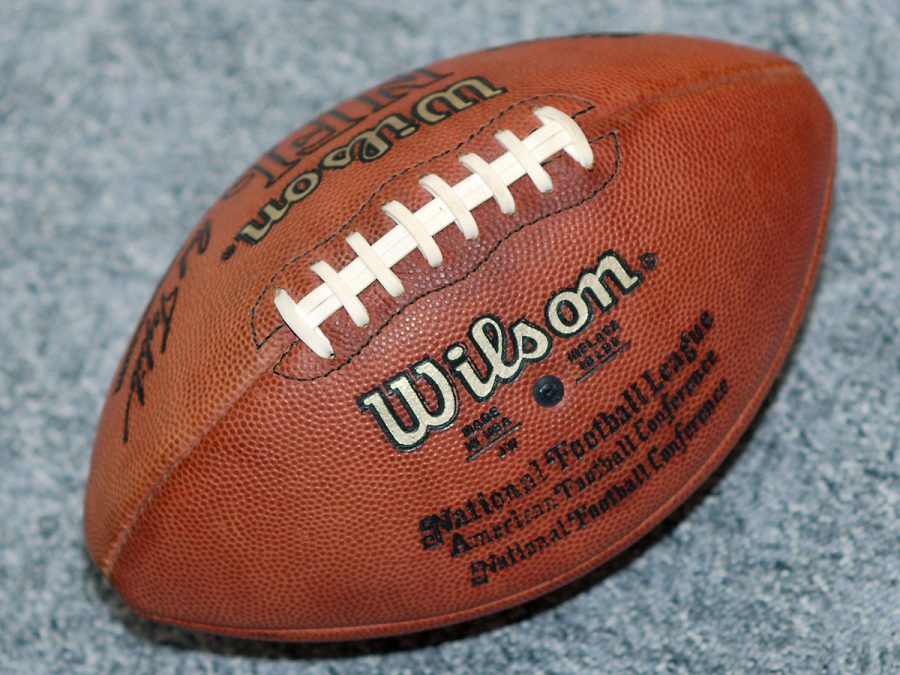Gallo: Are NFL players paid too much?
Torsten Bolten, Wikimedia Commons, https://creativecommons.org/licenses/by-sa/3.0
NFL players in America are paid incredibly high salaries for their sport, but are they paid too much money?
September 15, 2022
Football season is almost here. People across the nation will soon be glued to their TVs on Sunday afternoons watching the gridiron come alive. However, while football is certainly very popular in the U.S., many people simply don’t care. They see the sport as a waste of time and money that offers no value to society. This begs the questions, What is an NFL player worth, and are they paid too much?
As a mega fan of the sport, I certainly had an opinion, but I wanted to see what others thought. I asked my fellow students their perspectives and doing so broadened and shaped my own thoughts on the matter.
The poll itself was fairly simple. I went around the cafeteria and asked people if they thought football players are overpaid. If prompted, (i.e., How much are they paid?) I would offer up the following: The average salary for an NFL player is $2.7 million per year, the highest-paid player makes over $50 million per year, the lowest-paid makes just over $100K and the average career length is three years. I polled just over 100 students, and my results were that 59% of responders said football players were overpaid and 41% said no. I am sure many conclusions could be drawn from the data itself, but I was more interested in what arguments people were making to back-up their opinions. Essentially, most people’s arguments for either side boiled down to a few contentious talking points.
The argument for yes was straightforward in broad strokes. As responders claimed, in a perfect world, football should not be valued as much as it is. Many people brought up teachers, public workers and even doctors being paid very little by comparison for work with much higher perceived benefit to society. In essence: No one would be here without their teachers; why are they paid nothing when football players get paid millions to play a game? The NFL should not be bringing in $12 billion per year because there are so many better things to be doing with the money.
The arguments for no were slightly more varied. Some people pointed out that football is a dangerous sport (studies have shown nearly 90% of former players have brain damage) and players need the money for all of the health problems that arise from it. Others noted the average career length statistic and figured their salaries are not too much money overall. However, the most common reason why my classmates believed NFL players are not paid too much is simply this: The NFL brings in all of that money. It has to go somewhere. In our capitalist society, a business is only worth as much as the consumer values it. The NFL makes $12 billion per year because people like the NFL. Our society allows for any business to prosper as long as it makes money; the NFL does so. So, if the league brings in so much money it might as well go to the people risking their lives.
Therein lies the crux of the issue. Are we answering the question in a perfect world or the one we live in? Using the teacher example, most Americans agree they are underpaid. In a perfect world, they should earn more for what is an essential service to our country. But how does this work in our America? How exactly does any of the NFL’s bottom line get transferred to public schools? Let’s say the government was able to cap the profits of the NFL and distribute funds to teachers and other industries that arguably should be paid more. This seems like a brilliant solution except that I’ve just described communism. Unless we want to uproot and completely change our whole economic system, there is no effective way to transfer funds to teachers from professional football.
This is why my answer to this nuanced and interesting question is unfortunately no — NFL players are not overpaid. I agree that their value to society is not proportional to their profit margins, but the populace cannot change those margins. The NFL is worth $12 billion because we, as a society, decide to give them $12 billion. That money will not go anywhere else. If this is true, then the only place I would want the money to go is the players. The other option is 31 owners who are already billionaires.
But taking a step back from economics and comparative salaries, the impact of football is much larger than people think. Professional players often give back to their communities. Setting up programs, giving to charities and trying to make a positive impact are all praised as a part of a player’s status in the league. In fact, the most prestigious award the league gives is the Walter Payton Man of the Year Award, which is awarded to the player who gives back the most to his community. Which leads me to my final point: community. Being a sports fan, I am a part of an activity that connects millions of Americans as a form of entertainment. People put a very high value on things they enjoy, and if enough people enjoy football for the league to bring in billions, how is it any different from other forms of entertainment? If that’s the case, shouldn’t the providers of this communal entertainment be compensated? This brings me back to my central point: Football players get exactly what they deserve because me and millions of Americans like what they do. They have value and are paid as such.


















